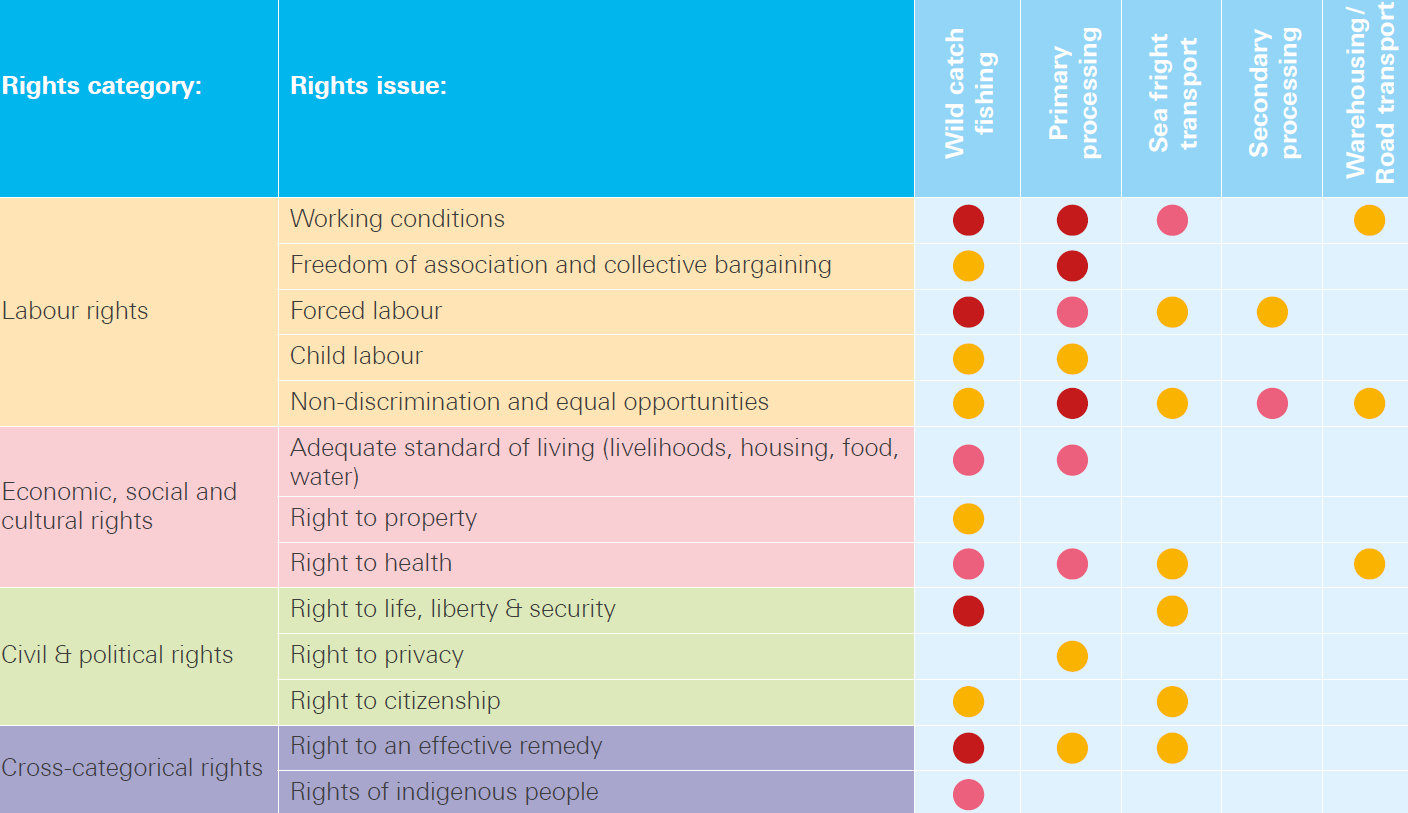Wild catch fish focused on tuna: HRIA
Posted by Brett Dodge

This HRIA report, published by Aldi North, was conducted by Ergon using our HRIA methodology. It looks at human rights risks and impacts in the wild catch fish and seafood supply chains, with a specific focus on tuna. The research began with a broad risk review across the entire wild catch fish and seafood sector before narrowing its scope to focus on ALDI’s own-branded canned tuna products, which represent the most materially significant wild caught fish and seafood product for ALDI by value and volume.
Key human rights issues and root causes in the supply chain
• Although there have been significant efforts in recent years to improve regulation and enforcement in the wild catch fishing sector, particularly with regards to illegal, unreported and unregulated (IUU) fishing, salient social and environmental issues reportedly remain widespread, including forced labour and severe labour exploitation on fishing vessels in certain fisheries, as well as overfishing.
• ALDI is working with a number of seafood sustainability initiatives to better understand the human rights risks in its own seafood supply chains, to increase the visibility of its sourcing practices down to raw material sourcing (wild catch fishing) and to improve its leverage. However, certification does not address the top labour and social risks or root causes sufficiently. Existing sustainability standards for wild catch seafood either only minimally cover human rights issues or, where they do address human rights more fully, are at an early stage of development and not yet widely used across the sector.
• Finding and keeping reliably responsible suppliers and fishing companies is challenging. The market can limit choices available for suppliers in terms of fisheries to source from. There are significant pressures exerted on the fishing industry. These pressures are linked to the inherent unpredictability of wild catch fishing, exacerbated by environmental challenges such as stock depletion. As a result, price volatility for wild catch fish and seafood raw material is the norm – ALDI’s suppliers may, in times of higher port
prices, find they cannot afford to source from the same companies.
The assessment identified a significant gendered division of labour in the global fish and seafood supply chain. In particular, the following characteristics were identified:
• Women are generally concentrated in lower-status and lower-paid roles, primarily in seafood processing both in primary and secondary processing.
• Women are minimally represented among workers on fishing vessels, or in shipping and road transportation and, as a result, face heightened risks of discrimination, harassment or abuse when part of the workforce.
Based on the recommendations of this HRIA study, ALDI has developed a Human Rights Action Plan. ALDI focuses on those areas, where it has potential linkage and leverage to address negative human rights impacts.